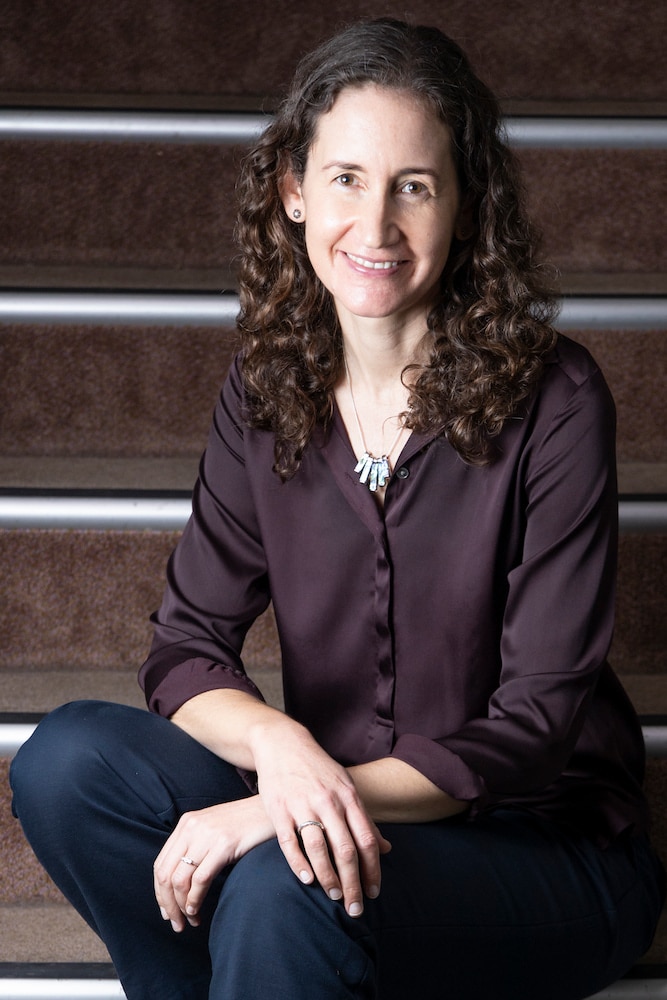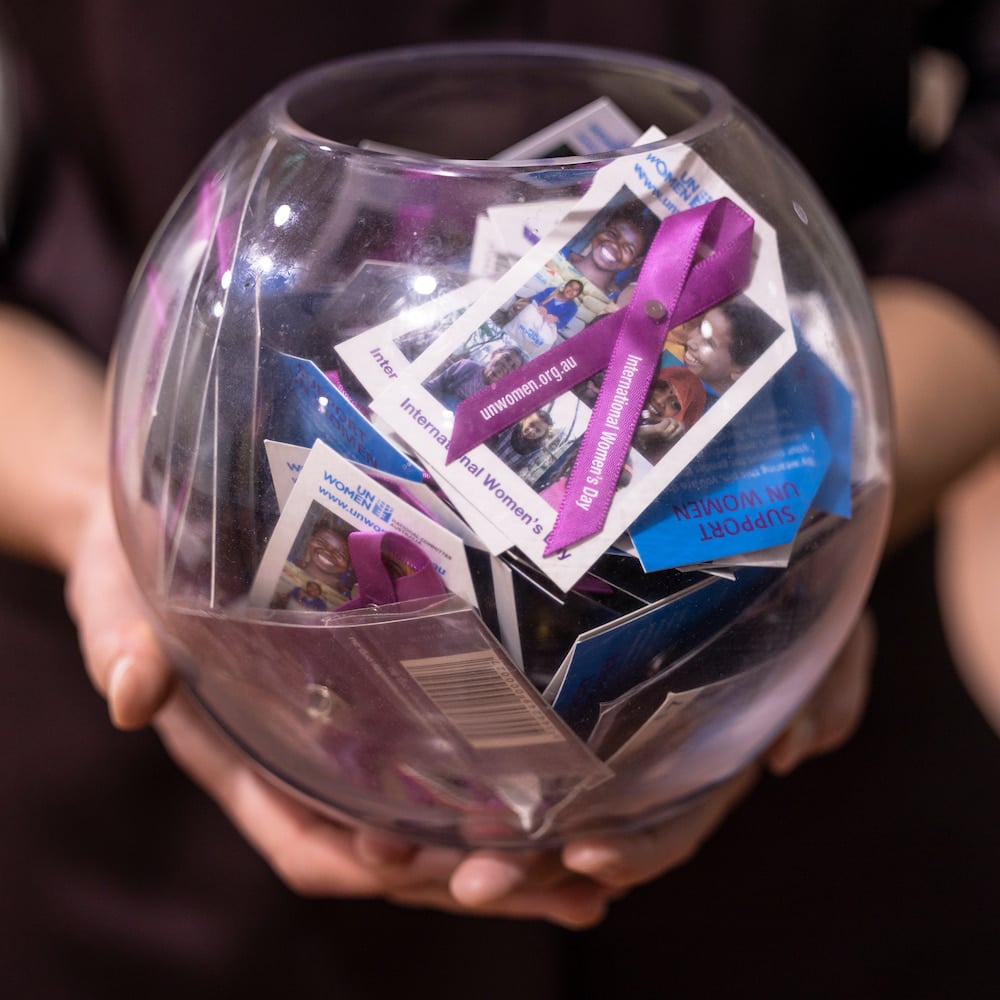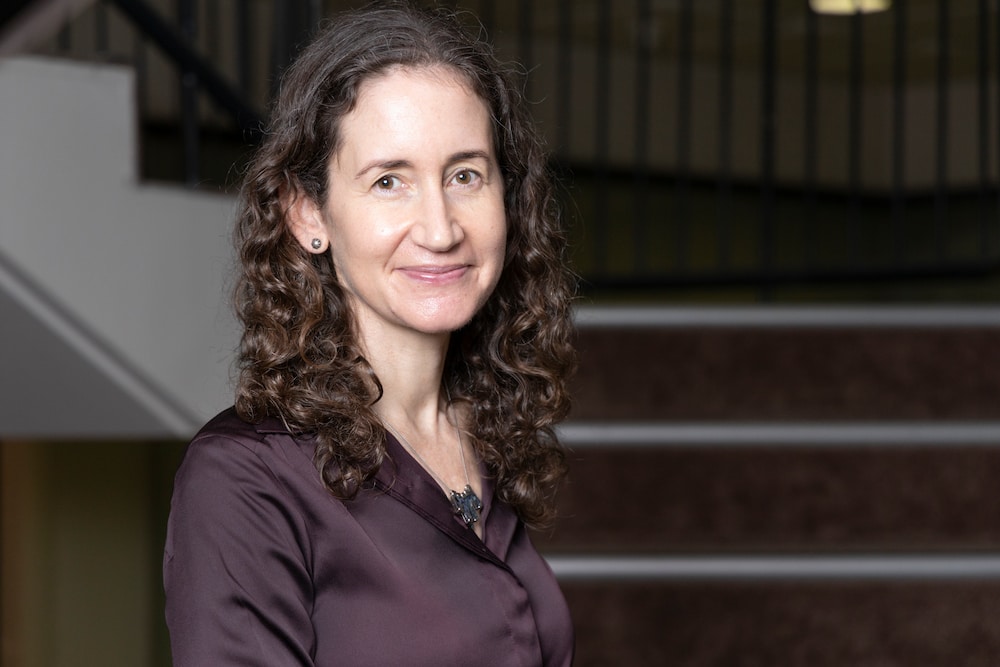In the leadup to International Women’s Day (IWD) 2021, UN Women Australia executive director Janelle Weissman reflected on some of the ways women and girls have been worse affected by the COVID-19 pandemic.
Women now face higher rates of domestic violence, on average more than three times the burden of caring, and are overrepresented in casualised workforces, meaning their jobs and wages are vulnerable to COVID-19 shutdowns.
“According to the World Economic Forum, at the current rate of change, it is estimated it will take 99.5 years to achieve gender equality across the world,” Ms Weissman said.
Accelerating progress toward gender equality is at the top of UN Women’s agenda, and this year the global champion for women and girls chose the International Women’s Day theme ‘Women in leadership’.

Ms Weissman said the theme shone a light on the importance of having a diverse range of women’s perspectives around decision-making tables.
“Representation matters. Women and girls have enormous contributions to make, bringing different experiences, perspectives and skills to the table, making decisions, policies and laws that work better for everyone.”
Only 30% of parliamentarians in Australia are women, making the ACT Legislative Assembly an outlier with a majority female Assembly and Cabinet.
Ms Weissman said increasing the number of women in leadership positions globally would “create more profitable and productive economies, flourishing businesses and a healthier and more peaceful planet for everyone”.
International Women’s Day is an opportunity to reflect on issues of gender-based inequality close to home.
But Ms Weissman said it was also important to look further afield.
“If we think about the name, International Women’s Day, it is one day out of 365 that we’re calling on all of us in Australia, to focus our hearts, our minds and our attention to the status of women across our borders.”
UN Women Australia’s IWD lunches will raise funds for women in Pacific countries, to assist them to become leaders, entrepreneurs, and agents for change.
“It’s specifically focused on a program in Solomon Islands, Vanuatu and Fiji that works with women who are market vendors.
“So they’re in informal employment, which has become increasingly important throughout the Pacific, given that tourism has ground to a screeching halt throughout COVID.”
The initiative, Markets for Change, works to equip markets with basics like toilets and clean drinking water, as well as secure accommodation for rural market vendors who travel far from home to sell produce and crafts.
Ms Weissman said the initiative was also creating spaces for women in the Pacific to develop skills as entrepreneurs, build strength as leaders and increase representation in the associations that govern the markets themselves.
“So that women can inform and shape policy and practice that has a real impact on their working environment, but also on their livelihoods.”
Mobilise, organise, use your voice
Being a leader herself, Ms Weissman said she was grateful for women “who were never afraid to speak out” and formative experiences that taught her the strength of female leadership.
“I used to join my granny and my mum at protests when I was little,” she said.
“And it became very clear to me how important it was to exercise your voice.
“And if you didn’t exercise your voice, oftentimes choices would be made for you.”
Putting that ethos into action, Ms Weissman, who was born in the United States, co-founded a feminist activist organisation at the University of Texas In Austin in the mid-1990s to address sexual assault on campus.
Together they organised rallies and marches, speaking publicly about the importance of ending gender-based discrimination, and any form of sexual harassment or assault at universities.
At that time, theirs was the second largest university in the United States.
“So to try to really mobilise and organise, and in such a large environment, was a little bit overwhelming.”
Ms Weissman said she learned that, in that context, leadership was “really about the collective”.
“It was about bringing people together who had a shared vision, and being able to listen to and lean on one another, to be able to deliver on that vision.”
Eventually they “caught the ear” of the President of the University of Texas at Austin.
“And over time felt like we were able to make incremental progress on the issues that we were trying to address.”
In Canberra, grassroots campaigns addressing sexual violence on university campuses continue to strive for change, and Ms Weissman said she was “so grateful for all the people who continue to agitate around this issue”.
“Gender-based violence exists everywhere, and it’s terrifying to think about the limited changes that we’ve seen.”
Demand for domestic and family violence services has increased dramatically across Australia since COVID-19, and Ms Weissman said gender-based violence was not isolated to any country in the world.
Two hashtags on the timeline
Social media users may notice two hashtags competing for attention in the lead up to IWD 2021.
One is #WomenLead, a derivative of this year’s UN Women global theme, Women in Leadership.
Ms Weissman said her organisation was the largest movement for gender equality in the world and the theme is anchored by the UN Commission on the Status of Women – “the largest policy debate in the world”.
The other hashtag is #ChooseToChallenge, a separate IWD theme chosen by internationalwomensday.com, a website run by Aurora Ventures.
On its business site, Aurora Ventures is described as a “purpose-driven enterprise focused on social and economic change”, and clients listed include Amazon, Google, McDonald’s and Nike.
Internationalwomensday.com is consistently the top result when searching for the annual day of action.
Ms Weissman said “no one owns International Women’s Day” and the website was not affiliated with UN Women.
“All funds raised from UN Women Australia’s IWD 2021 events will go to charity, supporting Pacific women as leaders,” Ms Weissman said.
Event details

Due to COVID-19, UN Women Australia has adjusted its IWD event schedule. There will be four live lunch events in Sydney, Melbourne, Brisbane and Canberra, with a concurrent breakfast in Perth.
In order to make the events inclusive, there will also be a live stream of the events on a virtual platform.
All audiences will watch a live streamed speech from Australian of the Year Grace Tame, and attendees at the Canberra lunch will hear directly from Australian Indigenous Governance Institute CEO Michelle Deshong and Australia’s Ambassador for Gender Equality Julie-Ann Guivarra.
For the first time, secondary schools may request a complimentary virtual ticket for students to participate remotely.
For further information about the Canberra lunch and virtual event, visit UN Women Australia online.
For more news:



